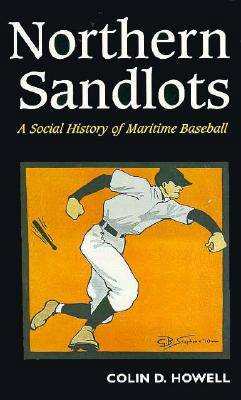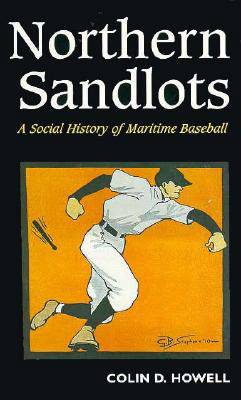
- Retrait gratuit dans votre magasin Club
- 7.000.000 titres dans notre catalogue
- Payer en toute sécurité
- Toujours un magasin près de chez vous
- Retrait gratuit dans votre magasin Club
- 7.000.0000 titres dans notre catalogue
- Payer en toute sécurité
- Toujours un magasin près de chez vous
Description
Northern Sandlots is the story of the rise and fall of regional baseball on the northeast coast of North America. Colin Howell writes about the social and economic influence of baseball on community life in the Maritimes and New England during the past century, from its earliest spread from cities and towns into the countryside, to the advent of television, and the withering of local semi-pro leagues after the Second World War.
The history of sport is an important feature of the `new' social history. Howell discusses how baseball has been deeply implicated in debates about class and gender, race and ethnicity, regionalism and nationalism, work and play, and the commercialization of leisure. Baseball's often overlooked connection to medical and religious discourse is also explored.
Howell begins with the game's earliest days when it was being molded by progressive reformers to meet what they considered to be the needs of an emerging industrial society. He then turns to the interwar years when baseball in the Maritimes became strictly amateur, revealing an emerging sense of community solidarity and regional identity. The game flourished at the community level after the Second World War, before it eventually succumbed to the new, commodified, and nationally marketed sporting culture that accompanied the development of the modern consumer society. Finally, Howell shows that fundamental changes in the nature of capitalism after the war, and in the economic and social reality of small towns and cities, hastened the death of a century-long tradition of competitive, community-level baseball.
Howell has written an informative and insightful social history that examines the transformation of Maritime community life from the 1860s to the late twentieth century.
Spécifications
Parties prenantes
- Auteur(s) :
- Editeur:
Contenu
- Nombre de pages :
- 288
- Langue:
- Anglais
Caractéristiques
- EAN:
- 9780802069429
- Date de parution :
- 05-05-95
- Format:
- Livre broché
- Format numérique:
- Trade paperback (VS)
- Dimensions :
- 153 mm x 228 mm
- Poids :
- 471 g







